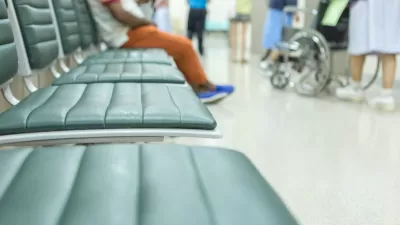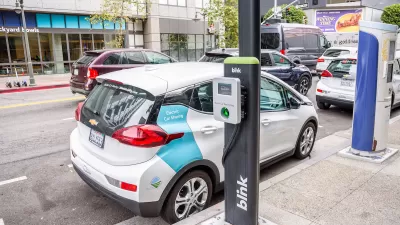Results from a YouGov survey indicate there is interest in subway and train cars being designated as women only, especially among female riders, younger riders, and people who have had negative interactions on public transportation.

YouGov, an international online research group, recently conducted a survey that asked 31,000 Americans if transit agencies in the United States should designate the first car of each subway train for women only like Japan, India, and Brazil do. According to their results, “43% of Americans somewhat or strongly support the trains and subway systems nearest to them reserving a car for women only. In comparison, only 30% of Americans oppose the adoption of this policy, and 27% are not sure.”
The picture becomes more interesting the farther you delve into the data. The following are some highlights (the original article has some excellent charts illustrating the results that are worth checking out):
- Women were more likely than men to support it (48 vs. 38 percent) and less likely to oppose it (22 vs. 37 percent).
- Ridership frequency impacts level of support: of those who support women-only cars: 60 percent of those who ride daily were in favor, as were 55 percent of weekly riders, 52 percent of monthly riders, 44 percent of those who ride a few times a year, and 37 percent of people who never ride transit.
- Opposition to women-only cars is strongest among Americans who say they never ride transit.
- Younger riders are more in favor of the policy, 56 percent of adults under 30 versus 32 percent of adults 65 and older.
- People who have had negative experiences on public transit (35 percent) are more likely to support women-only cars.
YouGov article authors Macel Moran and Taylor Orth conclude, “These results indicate significant interest from Americans in their local transit systems experimenting with women-only cars on trains and subways. Particularly in the context of decreased transit ridership nationwide in the wake of the COVID-19 pandemic, such a policy could potentially encourage transit use among women with previous negative experiences on public transportation.”
FULL STORY: Should U.S. transit systems designate women-only cars?

Planetizen Federal Action Tracker
A weekly monitor of how Trump’s orders and actions are impacting planners and planning in America.

Congressman Proposes Bill to Rename DC Metro “Trump Train”
The Make Autorail Great Again Act would withhold federal funding to the system until the Washington Metropolitan Area Transit Authority (WMATA), rebrands as the Washington Metropolitan Authority for Greater Access (WMAGA).

The Simple Legislative Tool Transforming Vacant Downtowns
In California, Michigan and Georgia, an easy win is bringing dollars — and delight — back to city centers.

Albuquerque’s Microtransit: A Planner’s Answer to Food Access Gaps
New microtransit vans in Albuquerque aim to close food access gaps by linking low-income areas to grocery stores, cutting travel times by 30 percent and offering planners a scalable model for equity-focused transit.

This City Will Pay You to Meet Your Neighbors
A North Kansas City grant program offers up to $400 for residents to throw neighborhood block parties.

Commentary: Our Silence Will Not Protect Us
Keeping our heads down and our language inoffensive is not the right response to the times we’re in. Solidarity and courage is.
Urban Design for Planners 1: Software Tools
This six-course series explores essential urban design concepts using open source software and equips planners with the tools they need to participate fully in the urban design process.
Planning for Universal Design
Learn the tools for implementing Universal Design in planning regulations.
Smith Gee Studio
City of Charlotte
City of Camden Redevelopment Agency
City of Astoria
Transportation Research & Education Center (TREC) at Portland State University
US High Speed Rail Association
City of Camden Redevelopment Agency
Municipality of Princeton (NJ)





























